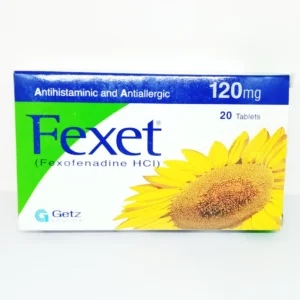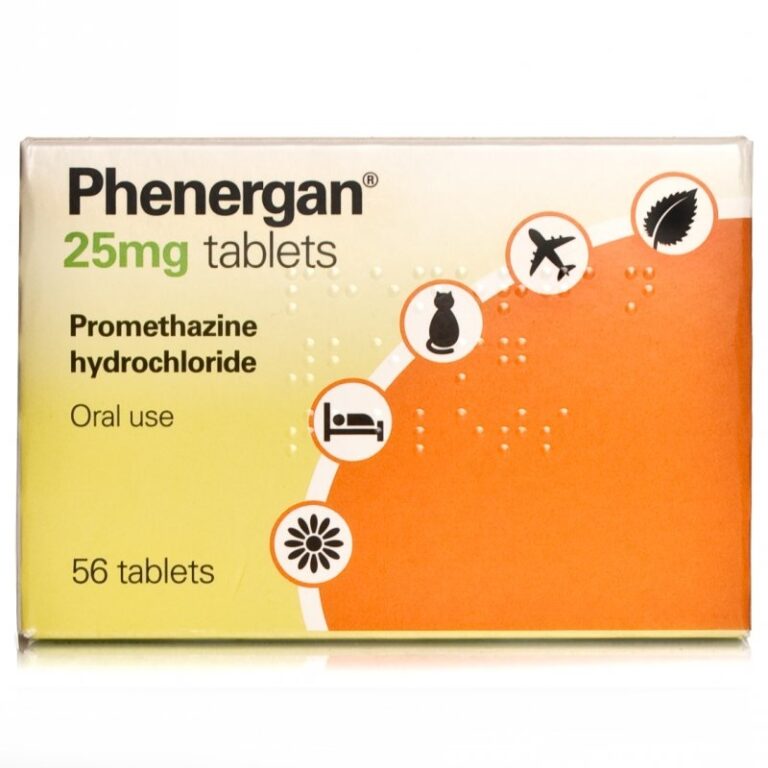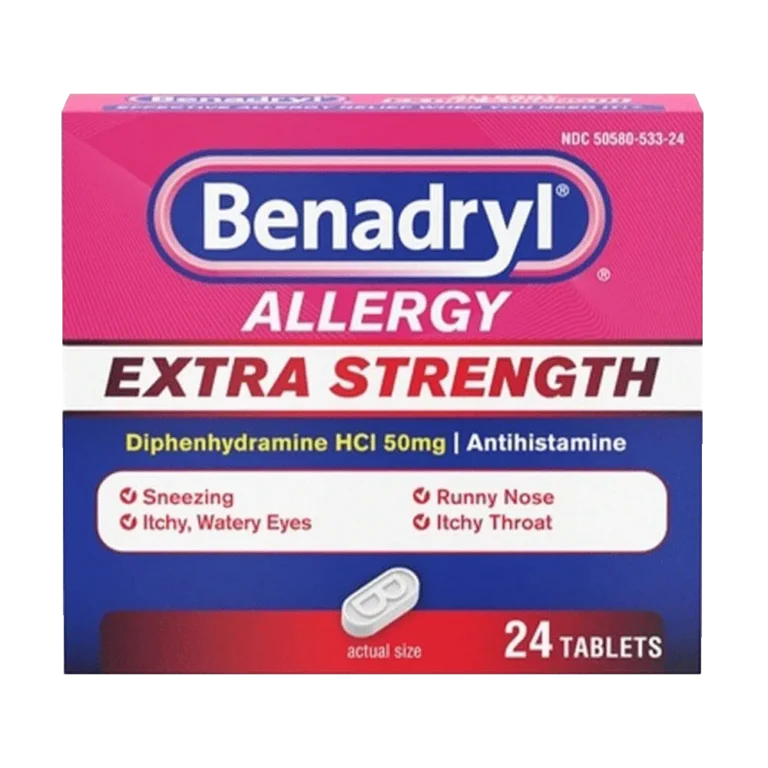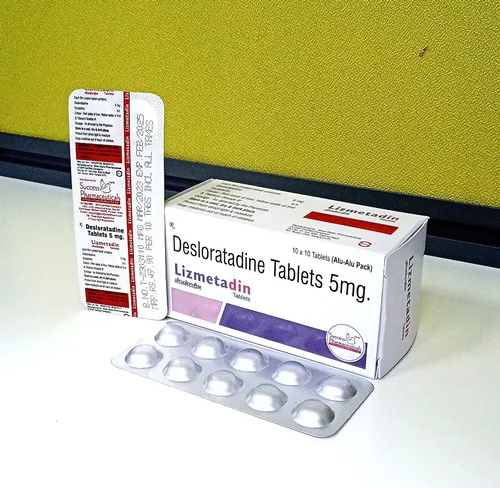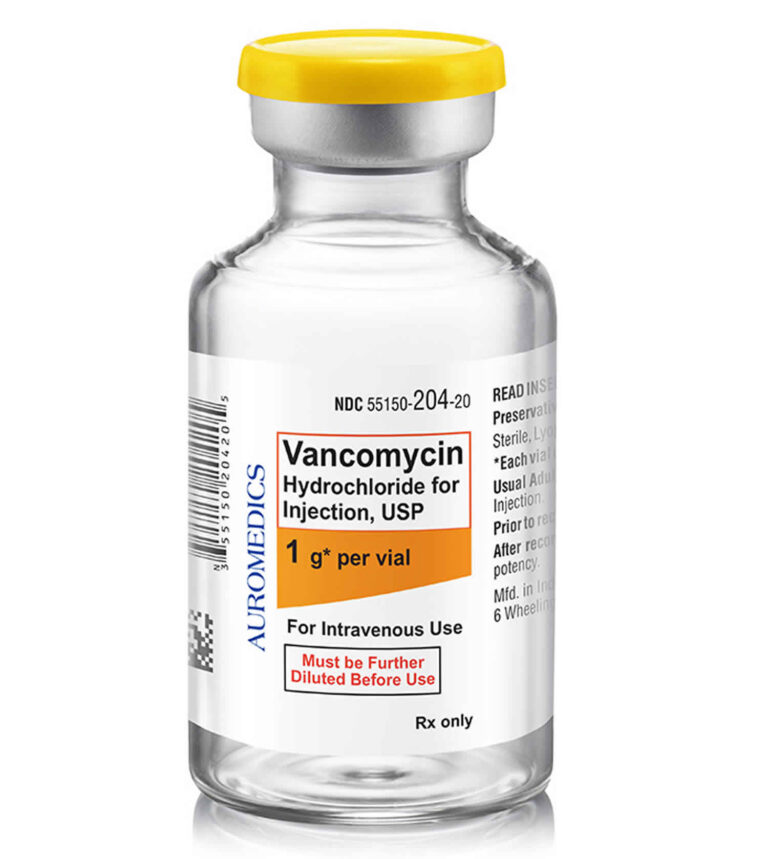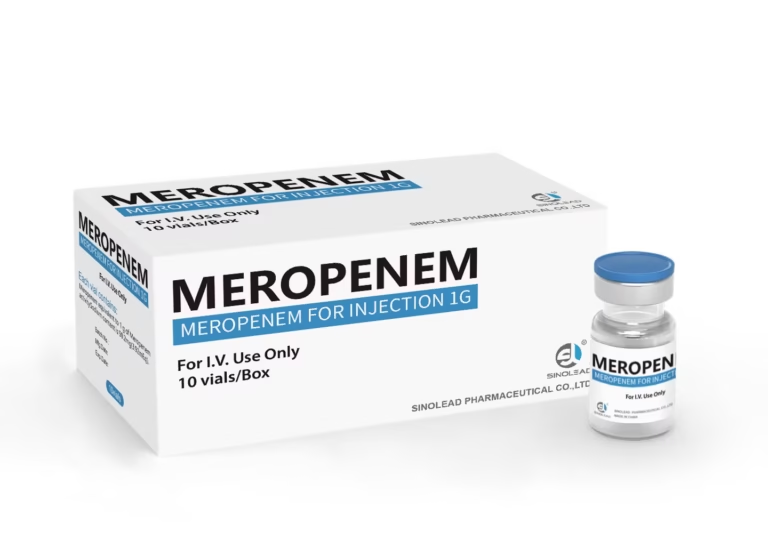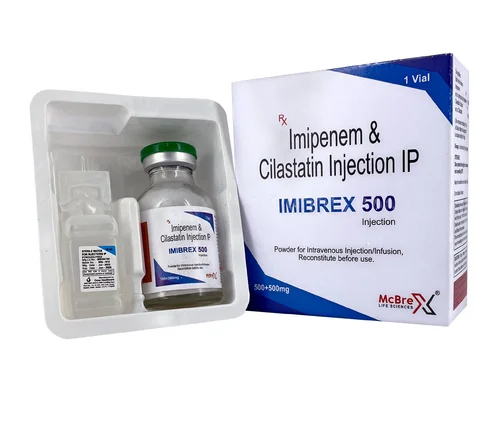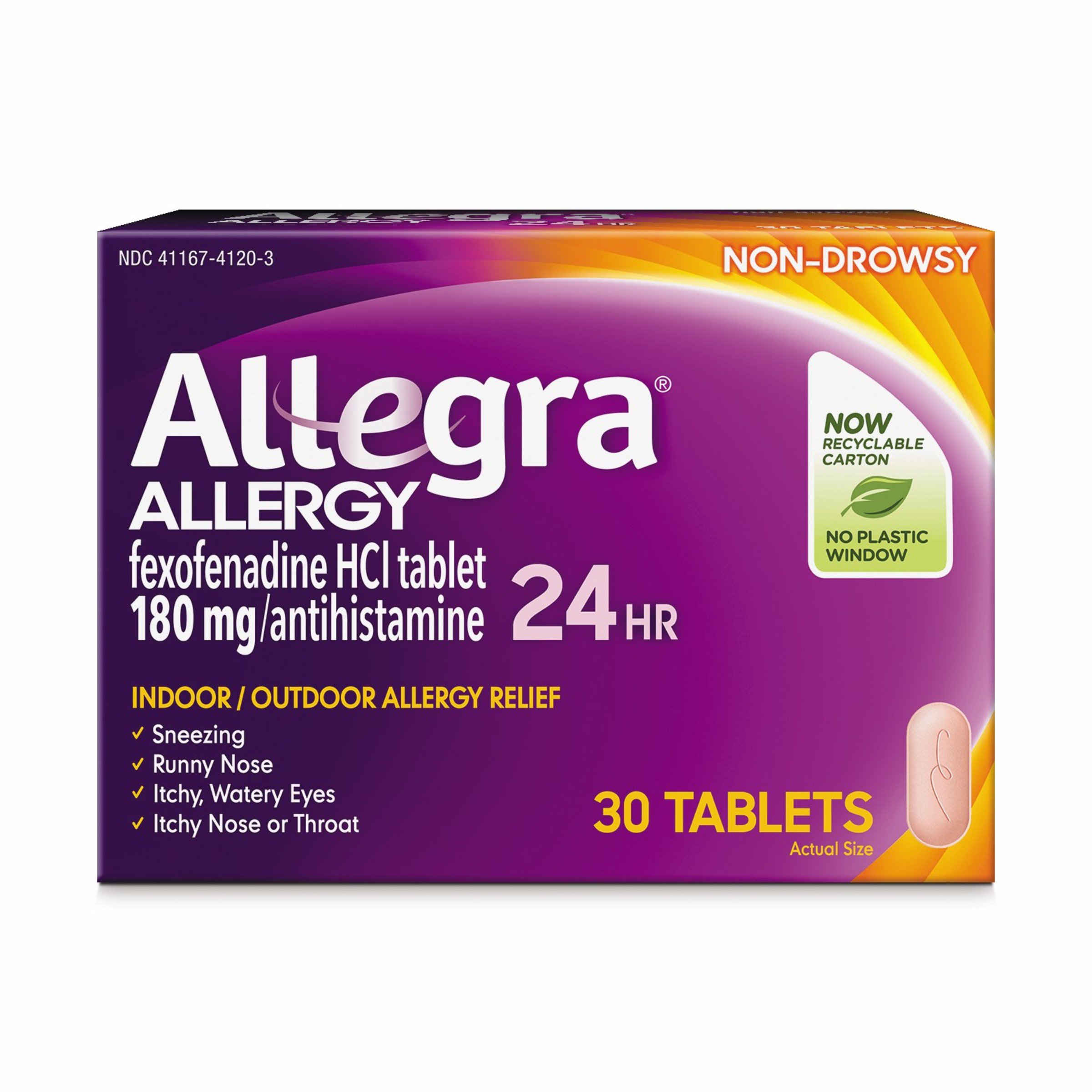
Allegra 180mg
Fexofenadine is an antihistamine commonly used to treat allergic reactions such as hay fever and hives. It helps to alleviate symptoms such as sneezing, runny nose, itchy or watery eyes, and itching. Here’s everything you need to know about fexofenadine.
Uses of Fexofenadine
Fexofenadine is primarily used for:
- Seasonal Allergic Rhinitis (Hay Fever)
Treats symptoms such as sneezing, itchy eyes, and nasal congestion.
- Chronic Urticaria (Hives)
Reduces itching, swelling, and rash associated with chronic hives.
- Allergic Conjunctivitis
Relieves eye symptoms caused by allergies.
Benefits of Fexofenadine
- Non-Sedating
Unlike older antihistamines, fexofenadine is less likely to cause drowsiness, making it safer for daytime use.
- Quick Relief
Starts working within one hour of intake, providing rapid symptom relief.
- Long-Lasting
Effective for up to 24 hours, reducing the need for frequent doses.
- Low Risk of Drug Interactions
Fexofenadine is generally safe with many other medications.
Risks and Side Effects
Although fexofenadine is generally safe, it may cause side effects in some people. These include:
-
Common Side Effects:
- Headache
- Dizziness
- Dry mouth
-
Serious Side Effects (Rare):
- Allergic reactions (rash, swelling, difficulty breathing)
- Fast or irregular heartbeat
-
Not for People with Certain Conditions:
- Kidney disease (dose adjustments may be needed)
Brand Names of Fexofenadine
Here is a table of popular brand names for fexofenadine, a commonly used antihistamine, along with their specifications:
| Brand Name | Manufacturer | Dosage Forms | Strengths | Indication |
|---|---|---|---|---|
| Allegra | Sanofi | Tablets, Oral Suspension | 30 mg, 60 mg, 180 mg | Allergic rhinitis, Urticaria |
| Telfast | Sanofi | Tablets | 60 mg, 120 mg, 180 mg | Allergic rhinitis, Urticaria |
| Fexofenadine HCl | Various generic brands | Tablets, Oral Suspension | 30 mg, 60 mg, 180 mg | Allergic rhinitis, Urticaria |
| Fexo | Various generic brands | Tablets, Oral Suspension | 60 mg, 180 mg | Allergic rhinitis, Urticaria |
| Fexofast | Various generic brands | Tablets | 120 mg, 180 mg | Allergic rhinitis, Urticaria |
Specifications:
- Common Strengths: 30 mg, 60 mg, 120 mg, 180 mg (may vary by product)
- Indications: It is primarily used to treat symptoms associated with seasonal allergic rhinitis (hay fever), perennial allergic rhinitis, and chronic idiopathic urticaria (hives).
- Dosage Forms: Available in tablets, capsules, and oral suspension.
How to Take Fexofenadine?
- Oral Tablets: Typically taken once or twice a day, depending on your condition and doctor’s instructions.
- Dosage: Adults usually take 60 mg twice daily or 180 mg once daily.
- With or Without Food: It can be taken with or without food but should be swallowed whole with a full glass of water.
- Avoiding Certain Foods/Drinks: Do not take with fruit juices (like grapefruit, orange, or apple juice) as they can reduce its effectiveness.
Is Fexofenadine Safe During Pregnancy?
It is classified as a Category C drug for pregnancy by the FDA. This means that while animal studies have not shown harm, there is insufficient data from human studies to guarantee its safety.
- Use During Pregnancy: It should only be used if the potential benefit justifies the potential risk to the fetus.
- Consult Your Doctor: Always speak with your healthcare provider before taking it during pregnancy.
Questions to Ask Your Medical Practitioner
- How should I use fexofenadine for my particular condition?
- Are there any interactions with my current medications or supplements?
- Is fexofenadine safe for me, especially if I have any underlying health conditions (e.g., kidney disease)?
- Can I safely use fexofenadine during pregnancy or breastfeeding?
- Are there any signs or symptoms I should watch for that would indicate a serious side effect?
Conclusion
Fexofenadine is a widely used antihistamine that provides effective relief from allergic symptoms with minimal risk of sedation. While generally safe, it is essential to follow the prescribed dosage and consult your doctor, especially if pregnant or managing other medical conditions. Always prefer professional medical advice for the desired outcomes.
